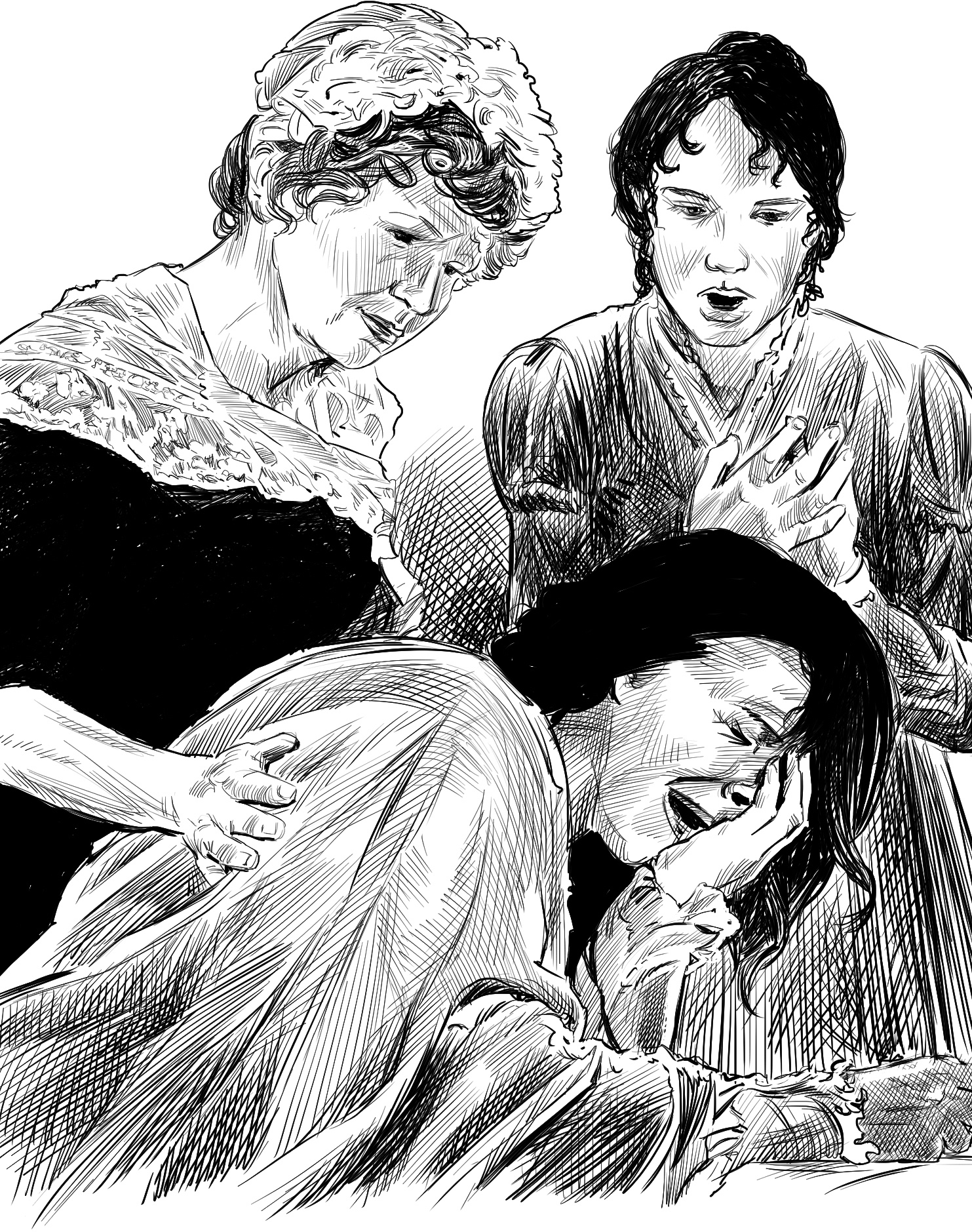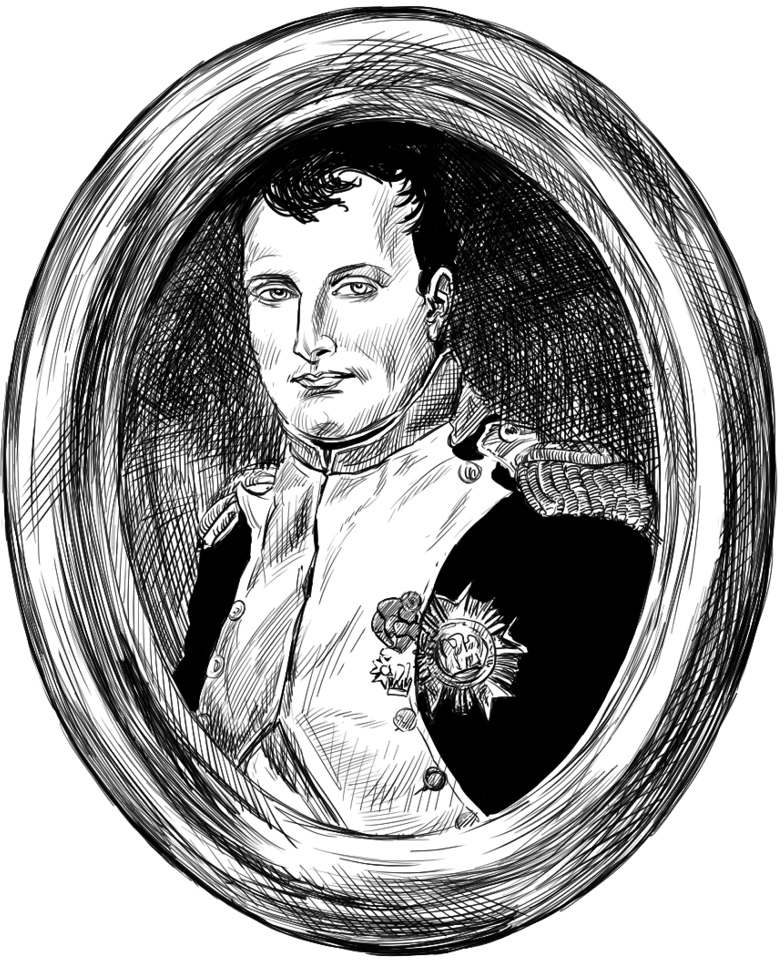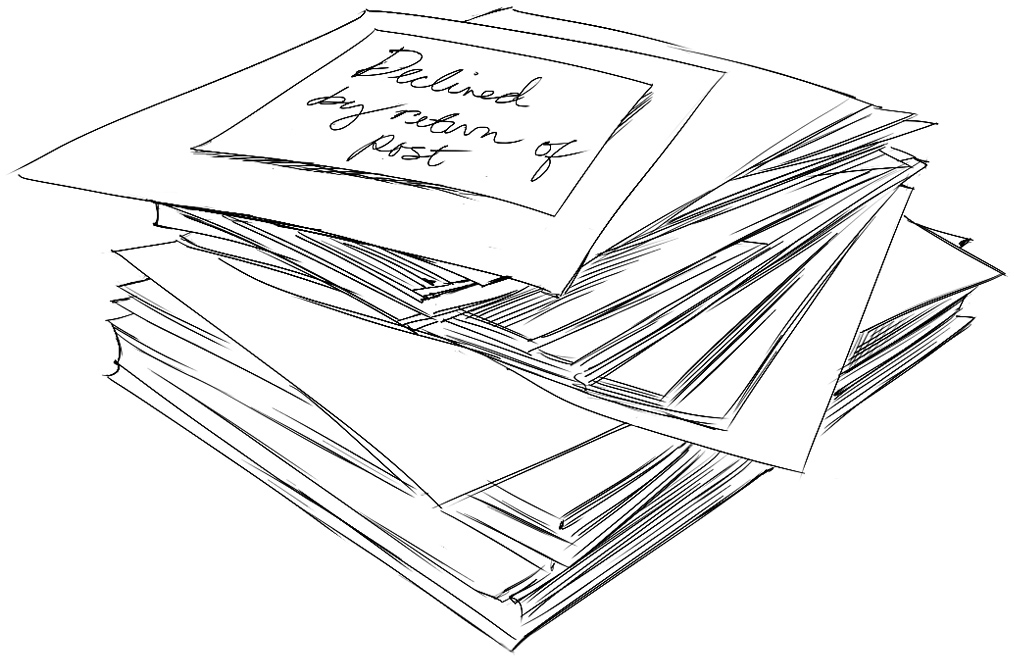CHAPTER 4
A Romance of Her Own

On Jane’s nineteenth birthday, her father gave her a small writing desk and a supply of writing paper and ink. Paper was expensive at this time, so the gift showed that Jane’s father believed in his daughter’s talent. He felt that Jane could be an author and make a living as a writer. Reverend Austen wanted Jane to have something to do other than worry about finding a husband.
Jane now had a place to write. But, unfortunately, she often had to put her writing aside. In early 1794, Eliza’s husband, the French count, was put to death in France. As a wealthy noble, he was one of the many victims of the French Revolution. The people leading the revolution wanted to do away with the royalty (their king and queen) and the noble families who were close to them.
Eliza was suddenly a widow. She was also broke. The French revolutionaries had seized her husband’s estate, so she stayed with the Austens for several months. Eliza found great comfort with her family.

The French Revolution, 1789–1799

Louis XVI

Napoleon

In May 1795, James’s wife died very suddenly. Their daughter, Anna, was only two years old at the time. James was overcome with sadness at the death of his wife. He didn’t think he would be able to look after his parish and his daughter. James asked his mother and his sisters to help. So for the next two years, Jane’s niece Anna lived at home with the Austens.
But Jane still made time to write even though her family needed her help. She was working on her first novel. The title was Elinor and Marianne. It was the story of two sisters told through a series of letters that the sisters write to each other.
Marianne was very emotional. She couldn’t wait to fall in love and get married. Her older sister, Elinor, was just the opposite: practical, patient, and in no rush to get married.

Thomas Lefroy
In January 1796, Jane wrote a letter to Cassandra, who was visiting her future in-laws. Jane told her sister that she had met a charming, handsome young man at a ball. The young man was named Thomas Lefroy. He was Irish and had recently moved to the area. The day after the ball, Thomas had visited Jane at home. They talked about many things, including their favorite books.
Jane and Thomas continued to meet. At the time, however, a young woman was not supposed to spend time alone with a young man. It wasn’t considered the proper thing to do. Jane and Thomas’s private meetings were soon discovered, and Thomas was teased about it. Jane was in love with Thomas, but their relationship was attracting attention.

Thomas Lefroy’s family heard about their son’s affection for Jane. They had wanted him to marry someone from a wealthy family. They did not want their son to fall in love with a minister’s daughter. Thomas’s parents quickly sent him to London to study law. Jane was heartbroken. She thought that Thomas might ask her to marry him. But Jane never saw or heard from Thomas again.

Jane poured her sadness about the end of her relationship with Thomas Lefroy into her writing. She was not happy with Elinor and Marianne, so she started a new novel called First Impressions. Jane wanted her main character to be strong and smart. In the story, the character Elizabeth Bennett enjoyed reading, having intelligent conversations with family and friends, and she always spoke her mind. She didn’t like silly women who were weak and felt like they needed a man to help them make decisions. Jane had based Elizabeth on herself and her sister.
Jane enjoyed working on First Impressions. She felt more confident about it than she had about Elinor and Marianne. But just when Jane was starting to be truly happy again, Cassandra received some bad news. She had been looking forward to her marriage once Thomas Fowle returned from the West Indies. But in the spring of 1797, Cassandra learned that Tom had died of yellow fever earlier in the year.


Jane and Cassandra had always been close. But the sadness that they felt over lost love brought them even closer together. They had both been in love, but the romances were not to be.
Jane worked hard on First Impressions and finished the manuscript later in the year. She was just twenty-one years old. Reverend Austen had read all of Jane’s work, and so he read First Impressions, too. He was impressed by his daughter’s novel. He decided to send it to a publishing company in London. But Jane’s father did not tell the publisher who the author was. Jane’s manuscript was returned with a note that read “declined by Return of Post.” Jane was upset. The novel that she and her family felt was so well written had been rejected. But Jane would not give up. She was determined to have her work published.
